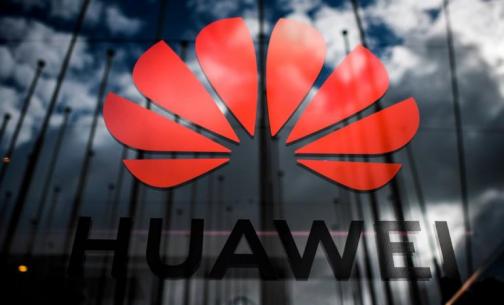According to the Financial Times reported on March 31, in 2014, Russian President Vladimir Putin turned to Huawei to rebuild and upgrade the region's communications infrastructure in crimea. Hosuk Lee-Makiyama, a telecommunications expert at Europe's International Political and Economic Center, said that in Crimea, Russia "has abandoned Western telecom equipment vendors in highly militarized regions and replaced them with Huawei and ZTE." He believes that if Nokia and Ericsson do exit Russia completely, Moscow will "need Chinese companies, especially Huawei, more than ever."
Despite the initial plunge in phone shipments, Huawei's phone sales in Russia rose 300 percent in the first two weeks of March, while other Chinese brands Oppo and Vivo also saw triple-digit sales, according to analysts at MTS, Russia's largest mobile operator.

Source: Financial Times
Huawei, which has four research centers in Russia, is hiring dozens of engineers, including machine learning scientists in Novosibirsk, speech recognition researchers in St. Petersburg and big data analysts in Nizhny Novgorod. Huawei has also added new sales and business development opportunities in Moscow. But experts say Chinese tech companies such as Huawei and Xiaomi risk violating sanctions if they continue to ship phones and telecommunications equipment to Russia.
Huawei's consumer business (red curve) has been hit hard in recent years Data source: Financial Times
The Financial Times said Huawei could be subject to more sanctions from Washington — just as Trump launched sanctions against ZTE. Kevin Wolf, a former Commerce Department official, said: "Huawei and other Chinese mobile phone manufacturers cannot legally export to Russia, and in theory, huawei may build mobile phones or base stations without AMERICAN-made equipment and software, etc., but it is difficult to believe that they can not rely on chips made by US technology." ”
Huawei has struggled to get rid of the U.S. semiconductor supply chain since the sanctions imposed by the Trump administration cut off Huawei's access to chips. Guo Ping, the company's rotating chairman, told reporters on Monday that Huawei is working to redesign its products to bypass the U.S. supply chain and get the same performance from chips from mature processes.
Huawei said monday that sanctions had hit huawei's smartphone business the hardest, causing its consumer business revenue to shrink by 50 percent last year. Huawei's total revenue fell 29 percent from a year earlier to 636.8 billion yuan ($100 billion), but sales of its telecom and enterprise lines were largely flat.
Huawei CFO Meng Wanzhou said: "The Huawei team has been under a lot of pressure in the past few years, which makes us more united and makes our strategy clearer. ”
The withdrawal of Apple and Samsung from Russia and the suspension of Operations in Russia by Ericsson and Nokia have left a gap in the supply of telecommunications equipment for broadband and mobile network infrastructure that needs to be maintained and upgraded. More than two decades ago, Russia was one of huawei's first foreign market destinations, and U.S. sanctions against Russia deepened ties between the two sides.
As in 2014, Russia needed a tech-savvy company to provide hardware support for the new sanctions-proof state payment system, Mir. Analysts say Huawei has won most of the contracts to launch 4G and 5G networks in Russia.
According to market research firm Dell'Oro, Huawei and Chinese counterpart ZTE account for about 40 to 60 percent of the Russian wireless network equipment market, with nokia and Ericsson in most of the rest. Huawei's market opportunity could also be involved in russia's other anti-sanctions programs, including the Hongmeng operating system developed for its phones after losing access to Google's mobile services. Vladimir Puzanov, CEO of Russian mobile phone maker BQ, told Russian media last week that the company was considering installing Harmony OS on new devices.
Yang Guang, an analyst at technology consultancy Strategy Analytics in Beijing, said in an interview with the Financial Times: "Huawei has a huge share of the Russian market, and now the sanctions have been like a 200-pound weight on their heads, so what is so terrible about adding another 20 pounds?" However, as a commercial entity, Huawei may wait and see for the time being. ”
Matthew Borman, an export official at the Commerce Department, threatened on Tuesday that Chinese companies would also face tough sanctions if they bypassed Russian sanctions. Borman said Washington has granted a number of export licenses allowing foreign suppliers to continue selling products to Huawei, but those licenses could be revoked. Guo Ping said the company was "carefully evaluating" the new sanctions. (Proofreading/Aaron)